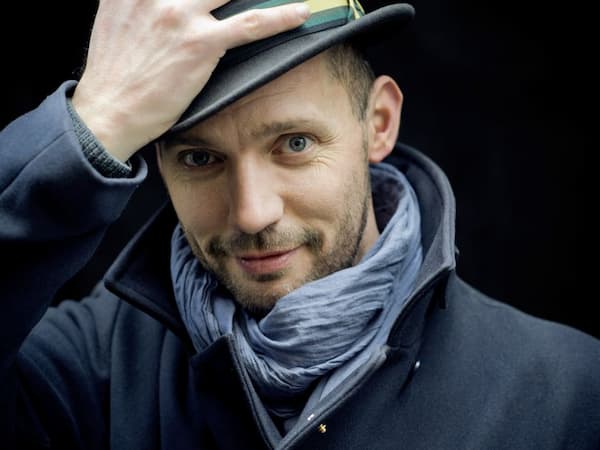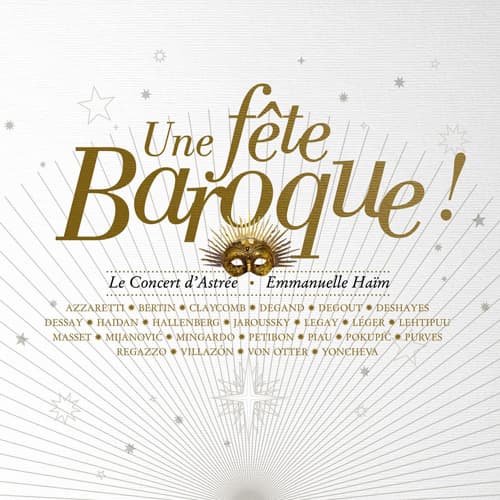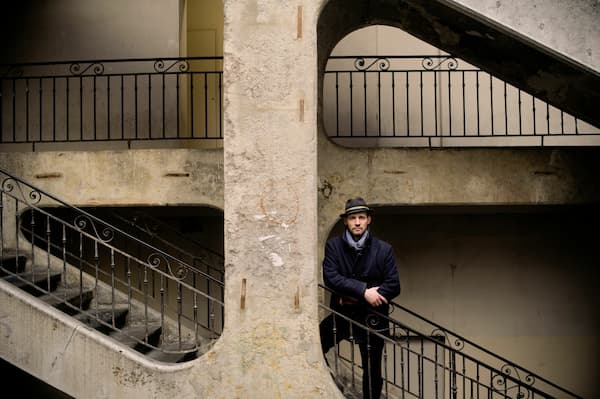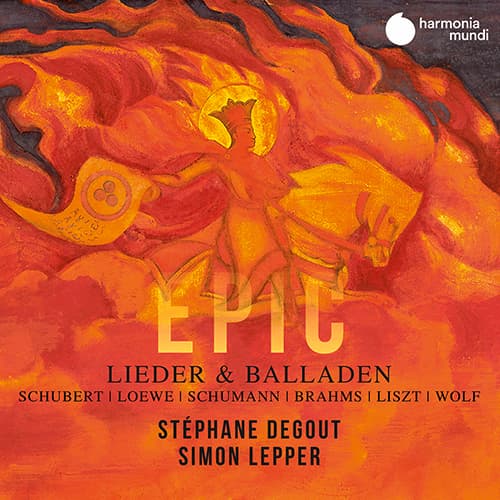The renowned French baritone Stéphane Degout is celebrated for his rich, versatile voice and compelling stage presence that established him as one of the leading opera singers of his generation.

Stephane Degout © Jean Baptiste Millot
Born on 9 June 1975 in Bourg-en-Bresse, France, Degout’s career has spanned a diverse repertoire, from Baroque and Mozart to French Romanticism and contemporary works, earning him critical acclaim for his nuanced interpretations and vocal precision.
Degout’s journey began with his training at the Lyon Conservatoire and the prestigious Atelier Lyrique at the Paris Opéra, which honed his artistry and led to early successes at major opera houses, including the Opéra National de Paris, the Royal Opera House in London, and the Metropolitan Opera in New York.
Beyond opera, his commitment to art song has made him a sought-after recitalist, collaborating with leading pianists and performing at venues like Wigmore Hall and Carnegie Hall. To commemorate his birthday on 9 June, let’s feature some of his most iconic performances and recordings.
Stéphane Degout Sings Thomas: Hamlet, “Comme une pâle fleur”
Une Fête Baroque

Une Fête Baroque is a joyous compendium of Baroque treasures, and Stéphane Degout’s contributions emerge as a cornerstone of the recording’s success. The recording is a testament of Degout’s versatility, showcasing his ability to thrive in the stylised yet emotionally resonant world of Baroque opera.
This remarkable recording captures the French baritone at the peak of his interpretive powers, as he delivers a performance that balances technical finesse and heartfelt expressions. His seasoned performance resonates with aficionados and newcomers to the genre, and Degout’s nuanced phrasing creates moments of exhilarating momentum, making Une Fête Baroque a standout in his discography.
Jean-Philippe Rameau: Dardanus, Act IV: Voici les tristes lieux que le monstre ravage … Monstre affreux,monstre redoutable (Stéphane Degout, baritone; Le Concert d’Astrée; Emmanuelle Haïm, cond.)
Poème d’un jour

Stéphane Degout
In the delicate realm of French mélodie, the collaboration between Stéphane Degout and pianist Alain Planès in their performances of Gabriel Fauré’s song cycles emerges as a beacon of refined artistry. Their 2024 album is a masterful tribute to Fauré’s centenary, weaving together five of his finest song cycles with a sensitivity that captures the composer’s elusive blend of lyricism and introspection.
Throughout, Degout’s burnished baritone, both velvety and precise, intertwines seamlessly with Planès’ luminous pianism, creating an intimate dialogue that breathes life into Fauré’s poetic soundscapes. Debout’s phrasing is deliberate yet fluid, eliciting a shimmering palette of colours that evoke the composer’s dreamlike intimacy. The result is a performance that feels both deeply personal and universally resonant, with critics hailing the emotional transparency of the recording.
Gabriel Fauré: Poème d’un jour, Op. 21 (Stéphane Degout, baritone; Alain Planès, piano)
3 Sonetti

In their 2024 Wigmore Hall recital, Stéphane Degout and pianist Jonathan Lepper crafted an evening of profound emotional resonance featuring Liszt’s Trois Sonnets de Pétrarque. This performance was nothing short of revelatory, as Degout’s baritone, with tender warmth and remarkable agility, breathed life into Liszt’s fervent settings.
In “Benedetto sia ‘l giorno,” Degout’s voice soars with ardent lyricism, capturing the ecstatic devotion of the text, while his delicate pianissimos in “I’ vidi in terra” evoke a haunting intimacy that lingers in the listener’s ear. Lepper’s accompaniment, marked by a crystalline clarity and dynamic sensitivity, mirrors the emotional arc of each sonnet. Critics at Wigmore Hall noted the duo’s “spellbinding chemistry” and praised Degout’s ability to convey the poetic fervour of Liszt’s music with a rare blend of vocal power and emotional vulnerability.
Franz Liszt: 3 Sonetti di Petrarca, S270/1/R578a (1st version) (Stéphane Degout, baritone; Simon Lepper, piano)
Der Doppelgänger
Stéphane Degout’s performance of “Der Doppelgänger” from Schwanengesang emerges as a haunting masterpiece of vocal artistry. His profound interpretive depth and Raphaël Pichon’s support in the orchestral arrangement by Franz Liszt, craft a chilling exploration of Heine’s spectral poetry.
Their performance, steeped in psychological intensity, transforms Schubert’s late masterpiece into a moment of transcendent unease, where voice and the orchestra converge to evoke the ghostly mirror of the self. Critics have called it a study “in controlled devastation,” with Degout’s dark and resonant baritone carrying the weight of existential dread. Degout has the mesmerising ability to inhabit the song’s psychological depth, highlighting his command over its emotional arc.
Stéphane Degout’s artistry, marked by a voice of profound warmth and interpretive depth, continues to captivate audiences, cementing his place as one of the foremost baritones of his generation. His collaborations reveal a singer whose emotional insight and vocal brilliance breathe new life into the timeless beauty of song.
For more of the best in classical music, sign up for our E-Newsletter
